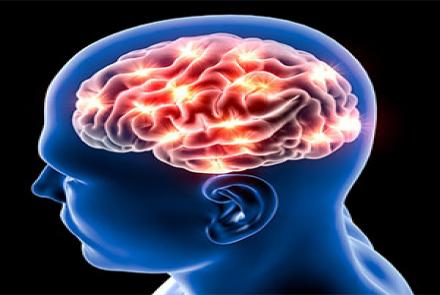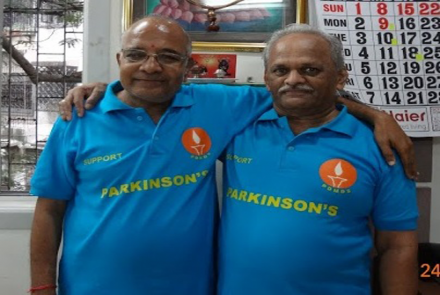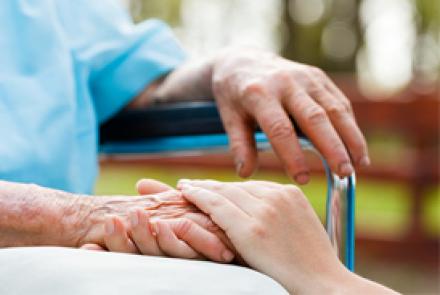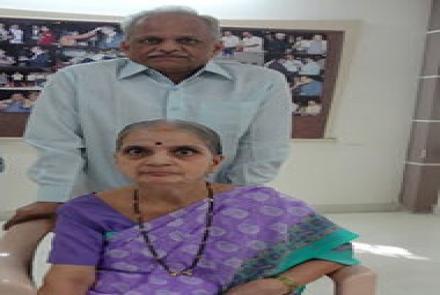
Being involved in the care of a loved one with Parkinson’s can have its own set of challenges. Often, during the course of taking care of a family member, one may forget to pay attention to one’s own health, needs and feelings. 7 tips for caregivers to look after their own health and overcome caregiver burden.
Your Emotional Heath
During the course of care giving many caregivers experience a range of feelings such as anger, sadness, frustration, guilt and pain. Having all of these feelings is perfectly acceptable, and is a normal part of the care giving experience. However many caregivers block these feelings out. For example, the daughter of a PWP may feel angry when she misses an outing with her friends because of her care giving role. But most often than not, she may feel that it is wrong to feel this way and that it is her duty to care for her family member and therefore bottle up the feeling. At other times, she may express this feeling in inappropriate ways such as shouting or blaming which may upset her loved one with Parkinson’s and also herself.
But it is important to realize that acceptance of all of these feelings, both positive and negative, is the first step towards healthy care giving. After accepting that these emotions are natural, you need to express them in a healthy manner which could be by talking to closed ones, by drawing or painting, going out for a walk, etc.
It is also helpful to be honest about your feelings with your loved one, and express these to him/ her as gently as you can. At the same time, you need to allow them to express their own feelings as well and recognize that these are equally valid and important. Mutual healthy expression of feelings with each other can strengthen your relationship, even if you do not find solutions to your problems.
Your Physical Health
Even though you may be the caregiver of someone with Parkinson’s, you might have some health problems yourself. It is therefore important to not ignore your health needs and visit your doctor from time to time. Pay attention to your diet, your exercise and your medication.
Quite often, in taking care of people with advance PD, many caregivers experience back pain in trying to lift him/her up from the bed or chair. You can contact a physiotherapist who will demonstrate the correct technique of helping your loved one get up from chair/bed and may help you with few back strengthening exercises for yourself.
Even if you are not facing any health issue, it is advisable to take care of your body and be consistent with your meal times, sleep cycle and exercise routine
Where to draw the line
Being a caregiver, you may be very inclined to do everything possible for your loved one. You may put his/her needs and demands before yours. You may refuse to seek help from others. You may be in constant search for newer drugs, new treatments, new surgical options, new assistance devices; but you should realize that Parkinson’s is progressive and it will bring challenges: some which we can conquer and some we have to accept.
Therefore, consciously remind yourself to relax, set priorities and take time out for yourself. Assess your strengths and limitations and seek help in areas that you cannot manage alone because in helping yourself, you will be helping your loved one.
Caregiver Burden
Caregiver burden refers to a high level of stress that may be experienced by people who are caring for another person (usually a family member) with some kind of illness.
- Do you sometimes tend to get more angry and frustrated with the PWP and with others compared to before?
- Do you feel that all days are the same and that there is nothing to look forward to?
- Do you feel that all your caregiver and other household/ professional responsibilities are too much to handle and are taking a toll on your health?
- Do you feel like leaving everyone and everything and escaping?
If you feel the above very often, you may be experiencing Caregiver Burden.
This can occur due to various difficulties that are faced when caring for someone with a chronic illness such as financial strain, difficulty managing the person's symptoms, dealing with repeated emergencies, lack of sleep, reduced contact with friends, or the loss of intimacy. But the most important contributing factor to caregiver burden is-forgetting yourself! Most often caregivers tend to forget to take care of themselves and take their health for granted. It is not selfish to spend some time for yourself. A caregiver's physical and emotional health is as important as the health of the person with Parkinson’s.
Tips for staying healthy and overcoming Caregiver Burden:
- Do not neglect your own physical health. Make sure you go for regular health check-ups, and visit doctors when you feel ill rather than ignoring the same. Make sure you follow a good diet and do some exercise (at least 30 minutes) everyday.
- Don’t hesitate to ask for help. You do not have to do this alone. Often, other family members may want to help you, but may not know how. If you have a family discussion where there are specific duties assigned to everyone, it will help to reduce your workload and also make the family feel involved.
- You can also hire help if it is possible to do so, in the form of staff to help you with your care giving or other responsibilities.
- Build and maintain your social support networks. Reach out to family members and friends.
- Take some time off from your care giving duties at least once every week, to do an activity that you enjoy. During this time, you can arrange for someone else to handle your care giving responsibilities, or if that is not possible, you can at least find some time during the course of the day which is solely for yourself. But doing something special for yourself alone is a very crucial part of maintaining your psychological health.
- Recognize signs of stress in yourself. When you feel extremely stressed, you will need to take a break, do some deep breathing for relaxation or any activity that helps you relax, and talk to someone about how you feel. If you feel very burdened, you may benefit from going to a professional counselor/ clinical psychologist, who will help you work through your concerns.
- Recognize that Parkinson’s need not affect the bond that you have with your loved one. It is good to do enjoyable things with your loved one, or even just talk to each other about non-PD related issues, from time to time.
Remember, despite the challenges of care giving, there are things that you and your family member love and cherish about each other. It is helpful to remind yourself about these from time to time, and to also share these with each other.
Stay tuned for our next article on Your Healthcare team !
















